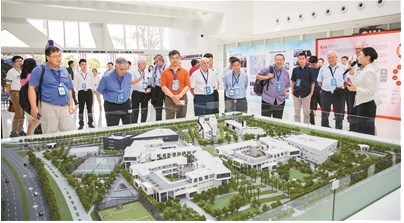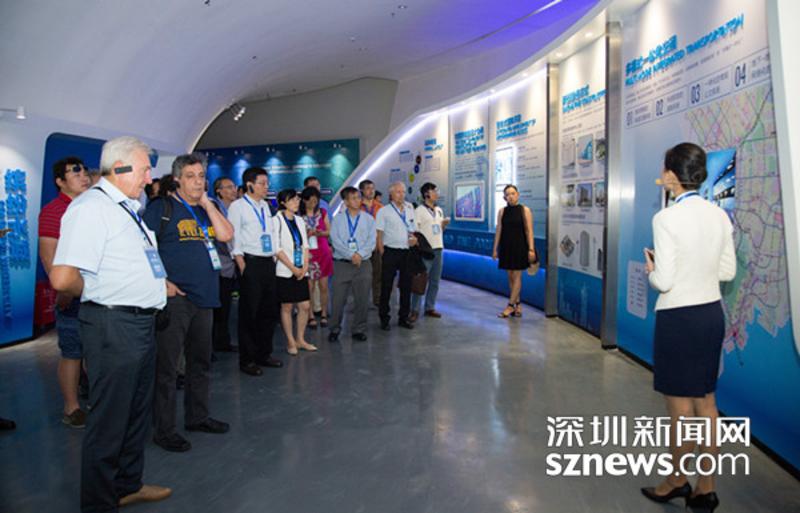A group of 18 academicians from nine countries and regions yesterday proposed suggestions for the construction of an environment- and business-friendly Qianhai, which aims at building a world-class talent pool and becoming an international tech and financial hub, at a conference in Futian District.
The academicians shared their views on effective approaches to attracting talents and the top-level designs of Qianhai’s future industries during the last day of the Overseas Academicians’ Qianhai Tour. They suggested that the Qianhai authorities further innovate its tax deduction policy, adopt new methods to lure talents and think bigger when planning the future industries.
Liu Ke, dean of the Institute of Clean Energy at the Southern University of Science and Technology and an academician at the Australian Academy of Technology and Engineering, said Qianhai may apply to build a national lab to attract Hong Kong talents, because “Hong Kong lacks the support of a complete industrial chain... By setting up such a lab, Hong Kong researchers will spend only about two hours commuting between the cities per day and they surely could achieve more cooperation with mainland universities.”
Xu Lei, an academician at the Academia Europaea, suggested that Qianhai find a way to integrate the academic incentives of the mainland and Hong Kong. “As far as I know, most people seeking doctorates and master’s degrees in Hong Kong are mainlanders who couldn’t find enough research support there. As a result, many graduates choose to move overseas. If Qianhai could create a mechanism to promote academic exchange between the two cities, it may help keep more talents from leaving,” Xu said.
Liu Mingyao, professor and director at the Institute of Medical Science of the School of Graduate Studies, University of Toronto, also added that Qianhai should come out with a smart tax policy that could help avoid unnecessary deductions for overseas talents.
Talking about the development of Qianhai’s industries, Wu Ke, an academician at both the Royal Society of Canada and the Canadian Academy of Engineering, said Qianhai should aim higher when introducing enterprises. “The development of companies such as Tencent and Huawei is actually the result of the development of the third generation of mobile communication technology,” Wu said. “The development of those technologies will generate various sub-industries and services. Thus, when introducing companies, Qianhai should think clearly of the future industrial distribution.”
The academicians also remarked on environmental protection and emphasized the importance of cultural development during the conference.
During the three-day tour, they visited famous local enterprises and representative companies and projects in Qianhai.



 粤公网安备 44030502003702号
粤公网安备 44030502003702号